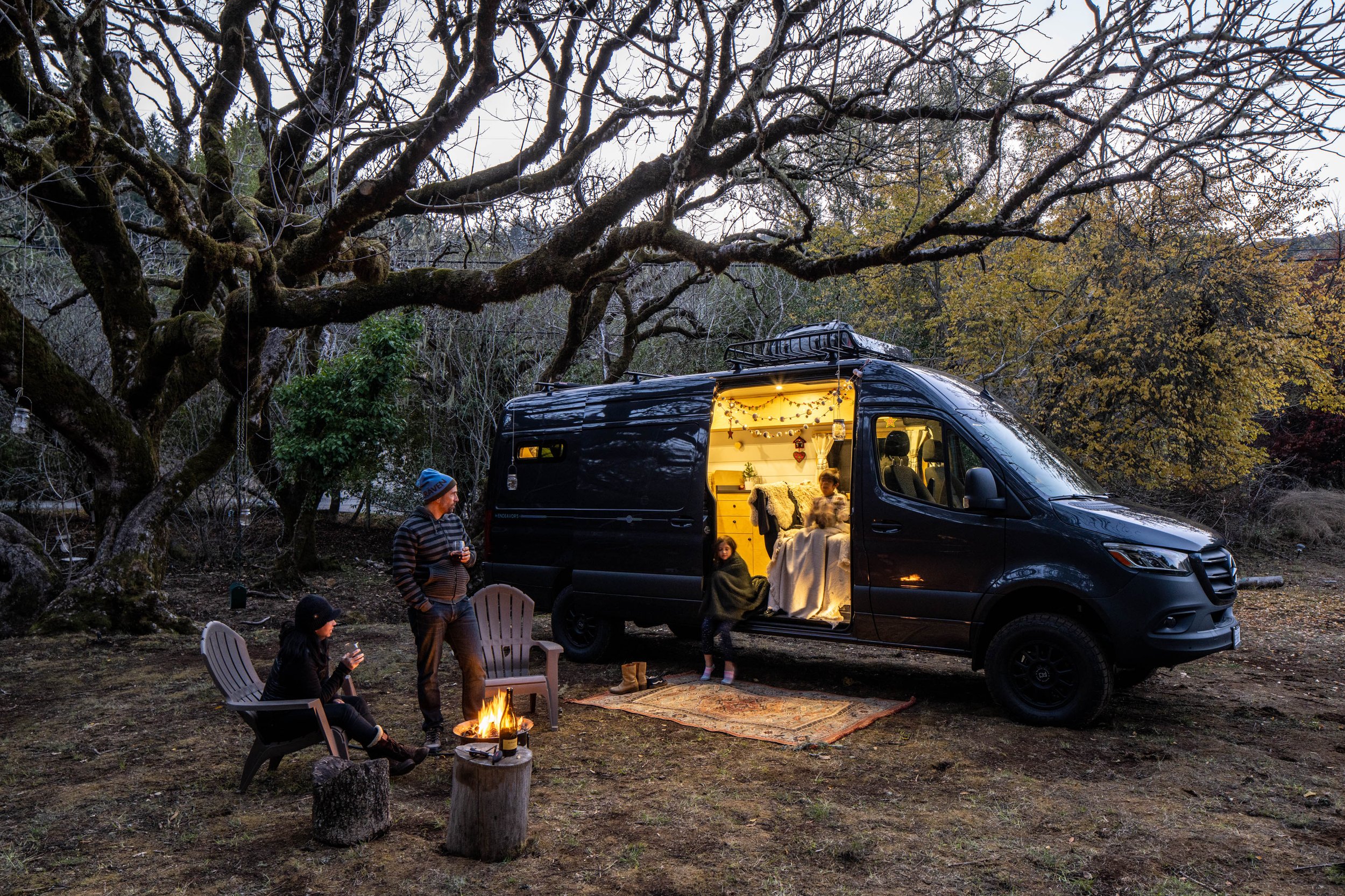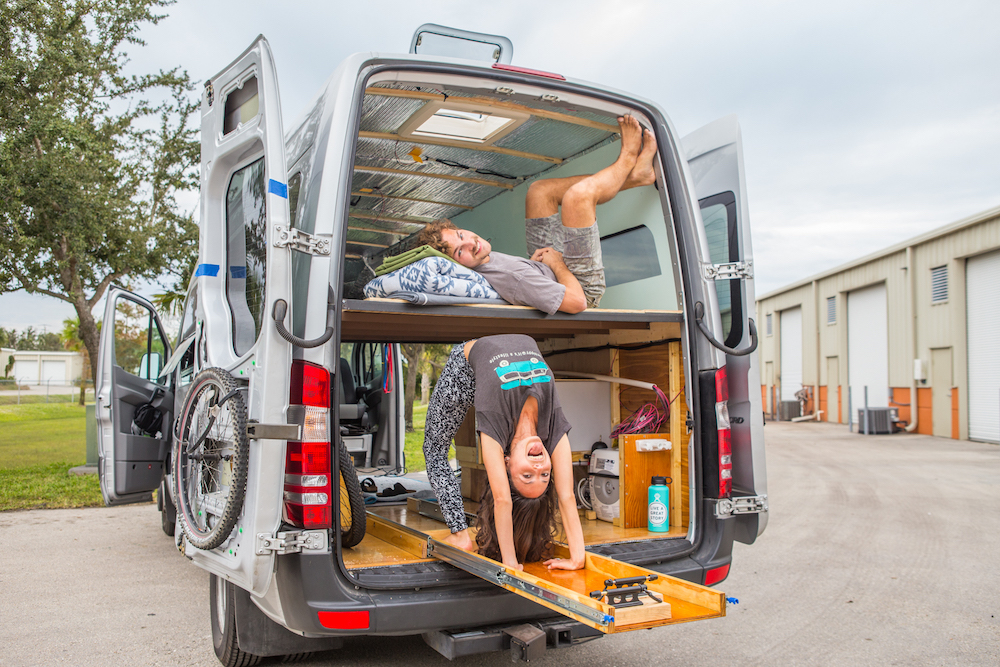Vanlife is all about freedom, exploration, and self-sufficiency. It’s about living life on the road and enjoying the beauty of nature while exploring new places. However, this lifestyle is not without its challenges, especially when it comes to living sustainably and minimizing your environmental impact. In this article, we will explore different ways to live sustainably and reduce your carbon footprint while on the road.
Reduce energy consumption

One of the best ways to live sustainably while vanlife is to reduce your energy consumption. You can start by using energy-efficient appliances, including solar panels and LED lights. By reducing your energy consumption, you will be able to reduce your carbon footprint and save money on energy bills.
Use eco-friendly products
The products you use in your vanlife can have a significant impact on the environment. By using eco-friendly products such as biodegradable cleaning products, you can reduce the amount of waste you generate and minimize your impact on the environment.
Conserve water
Water is a precious resource, and it’s essential to conserve it while living on the road. You can do this by using a low-flow showerhead, fixing any leaks, and collecting rainwater. By conserving water, you can reduce your environmental impact and save money on water bills.
Practice Leave No Trace Principles
When exploring the outdoors, it’s essential to leave no trace. This means leaving the environment as you found it, without leaving any waste behind. You can do this by packing out all trash, avoiding campfires in areas where they are prohibited, and respecting wildlife and their habitats.
Use public transportation and bikes
One of the best ways to reduce your environmental impact is to use public transportation or bikes when exploring new areas. This will help you reduce your carbon footprint and save money on gas. You can also opt for electric bikes or scooters to reduce your carbon footprint even further.
Reduce food waste
Food waste is a significant contributor to greenhouse gas emissions. To reduce your environmental impact, it’s essential to reduce food waste. You can do this by planning your meals, buying only what you need, and composting food scraps. By reducing food waste, you can help minimize your carbon footprint and save money on groceries.
Shop locally
Shopping locally is an excellent way to reduce your environmental impact while supporting the local community. You can visit local farmers’ markets, buy produce from local farms, and shop at local businesses. By doing so, you can reduce the amount of transportation needed to get goods to your location and support the local economy.
Use eco-friendly transportation
When traveling, it’s essential to use eco-friendly transportation methods. You can opt for electric vehicles, hybrid cars, or public transportation to minimize your carbon footprint. You can also try carpooling with other vanlifers to reduce the number of vehicles on the road.
Connect with nature
Connecting with nature is one of the best ways to appreciate and respect the environment. You can do this by exploring new trails, camping in designated areas, and respecting wildlife and their habitats. By connecting with nature, you can gain a better understanding of the impact you have on the environment and how to minimize it.
Spread the word
Finally, one of the best ways to live sustainably while vanlife is to spread the word. Share your experiences with others, and encourage them to adopt sustainable practices. By doing so, you can inspire others to make a difference and reduce their environmental impact.
Shop Local and Support Sustainable Brands
When you’re on the road, it’s important to support local businesses and shop from sustainable brands. Buying from local farmers’ markets or small businesses not only helps support the local economy but also reduces the carbon footprint from transportation.
Many vanlifers also opt for eco-friendly and sustainable products, such as biodegradable soaps, reusable water bottles, and bamboo utensils, to reduce their environmental impact.
Reduce Water and Energy Use
Living in a van means being mindful of water and energy consumption. Some ways to reduce water usage include taking shorter showers, using a water-efficient faucet, and washing dishes in a basin instead of running water.
For energy conservation, consider installing solar panels, using LED lights, and turning off electronics when not in use. You can also invest in energy-efficient appliances such as a propane stove, a small refrigerator, or a solar-powered fan.
Composting and Waste Management
Vanlifers generate waste, and it’s essential to have a plan for proper disposal. One way to reduce waste is by composting food scraps and biodegradable items. You can create a simple composting system in your van by using a small bin or a worm composting bin.
It’s also important to dispose of hazardous waste, such as batteries and propane tanks, properly. Many national parks and public lands have designated waste disposal areas, so make sure to do your research before heading out.
Leave No Trace
Living sustainably also means practicing Leave No Trace principles. This means respecting the environment and leaving it as you found it. Some of the principles include packing out all trash and waste, staying on designated trails, and avoiding disturbing wildlife. It’s essential to be mindful of your actions and take responsibility for your impact on the environment.
Community Efforts
Many vanlifers are part of a community of like-minded individuals who share a passion for sustainable living. Joining vanlife groups or attending meetups is an excellent way to learn more about sustainable living and connect with others who share your values. You can also participate in community efforts such as volunteer work and beach cleanups to give back to the environment.
Continual Learning and Improvement

Living sustainably is an ongoing process that requires continual learning and improvement. There’s always room for growth, and the vanlife community offers many resources to help you along the way. Some of these resources include online forums, blogs, and books on sustainable living. It’s important to stay curious and open-minded and to make sustainability a lifelong commitment.
Conclusion
Living sustainably while vilifying is an essential part of reducing your environmental impact and respecting the environment. By practicing sustainable living, you can enjoy the freedom and adventure of vanlife while preserving the planet for future generations.
The tips outlined in this article are just a starting point, and there are many other ways to reduce your impact and live sustainably. By making small changes and committing to continual improvement, we can all work towards a more sustainable future.

